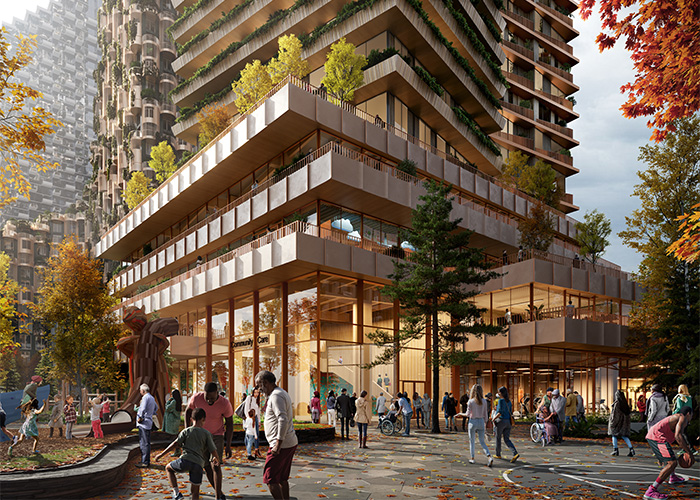Toronto swaps Google-backed ‘smart’ city plans for people-centred vision: Canada’s largest city has moved towards affordability, sustainability and environmentally-friendly design in a new vision for the Quayside waterfront – a year on from parting with Google-affiliated Sidewalk Labs. Waterfront Toronto launched an international competition in March to secure a new development partner for the Quayside lands, to build “a sustainable community for people of all ages, backgrounds, abilities and incomes.” The Quayside development will provide “market and affordable housing options for individuals and families. It will offer opportunities for aging in place, including the supports and amenities that will allow seniors to live independently. Inclusive economic development opportunities will create jobs and spaces for business owners that reflect Toronto’s diversity,” they write. The call for new proposals comes nearly a year after the Sidewalk Labs partnership was called off, a “stinging defeat” reports …
- Products
- New Releases
- All New Releases
- ChillOUT Tree
- Linea Bar Table
- Linea Bench
- Linea Bicycle Stand
- Linea Bin
- Linea Bollard
- Linea Cube
- Linea Curved Bench
- Linea Curved Lookout Table
- Linea Curved Seat
- Linea Long Communal Table
- Linea Lookout Bar Table
- Linea Lookout Table
- Linea Planter
- Linea Platform
- Linea Seat
- Linea Sun Lounge
- Linea Table
- Piatto Bar Stool
- Piatto Chair
- Piatto Coffee Table
- Piatto Love Seat
- Piatto Stool
- Piatto Table
- VT Bench
- VT Curved Bench
- VT Curved Seat
- VT Seat
- Seats
- Benches
- All Benches
- Aero Leaning Rail
- Aria Bench
- Cafe Stool
- Classic Galleria Bench
- Classic Galleria Slim Bench
- Classic Plaza Bench
- Classic Plaza Platform
- Linea Bench
- Linea Cube
- Linea Curved Bench
- Linea Platform
- Mall Bench
- Mall Curved Slim Bench
- Mall Platform
- Mall Slim Bench
- Park Bench
- Park Slim Bench
- Piatto Bar Stool
- Piatto Stool
- VT Bench
- VT Curved Bench
- Tables
- All Tables
- Aria Long Communal Table
- Aria Lookout Table
- Aria Table
- Cafe Table
- Classic Galleria Table
- Classic Plaza Platform
- Classic Plaza Table
- Linea Bar Table
- Linea Curved Lookout Table
- Linea Long Communal Table
- Linea Lookout Bar Table
- Linea Lookout Table
- Linea Platform
- Linea Table
- Mall Platform
- Mall Table
- Park Table
- Piatto Coffee Table
- Piatto Table
- Shade Structures
- Litter Solutions
- Bollards
- Drinking Fountains
- Bicycle Parking
- Planters and Tree Surrounds
- Parts and Accessories
- Colour Chart
- New Releases
- Projects
- Climate Action
- StreetChat
- About
- Contact



